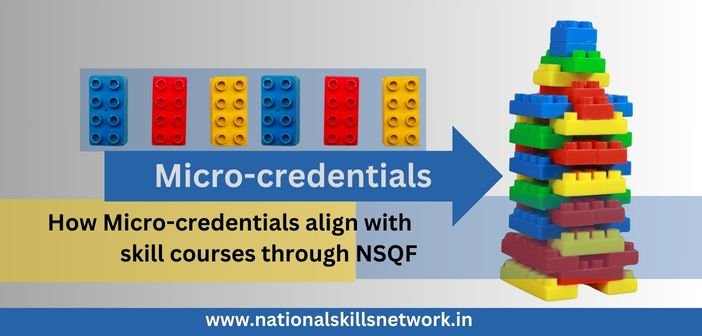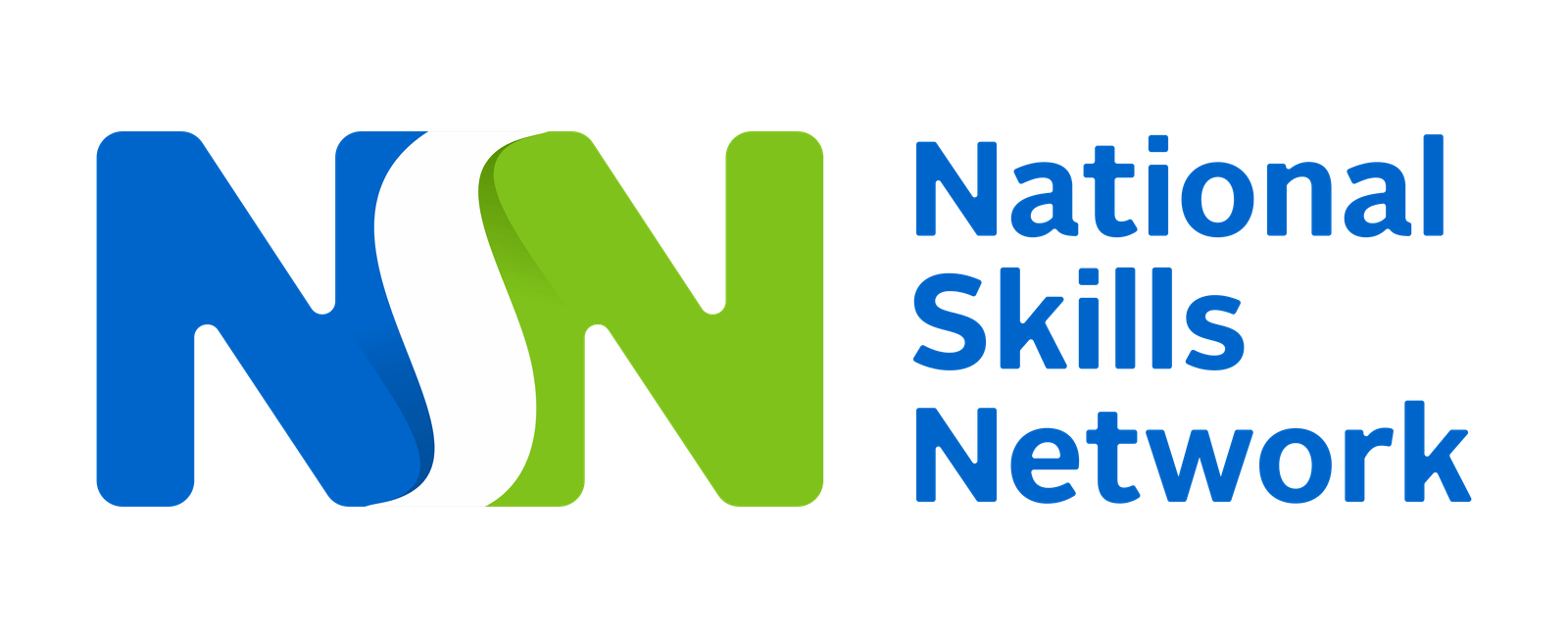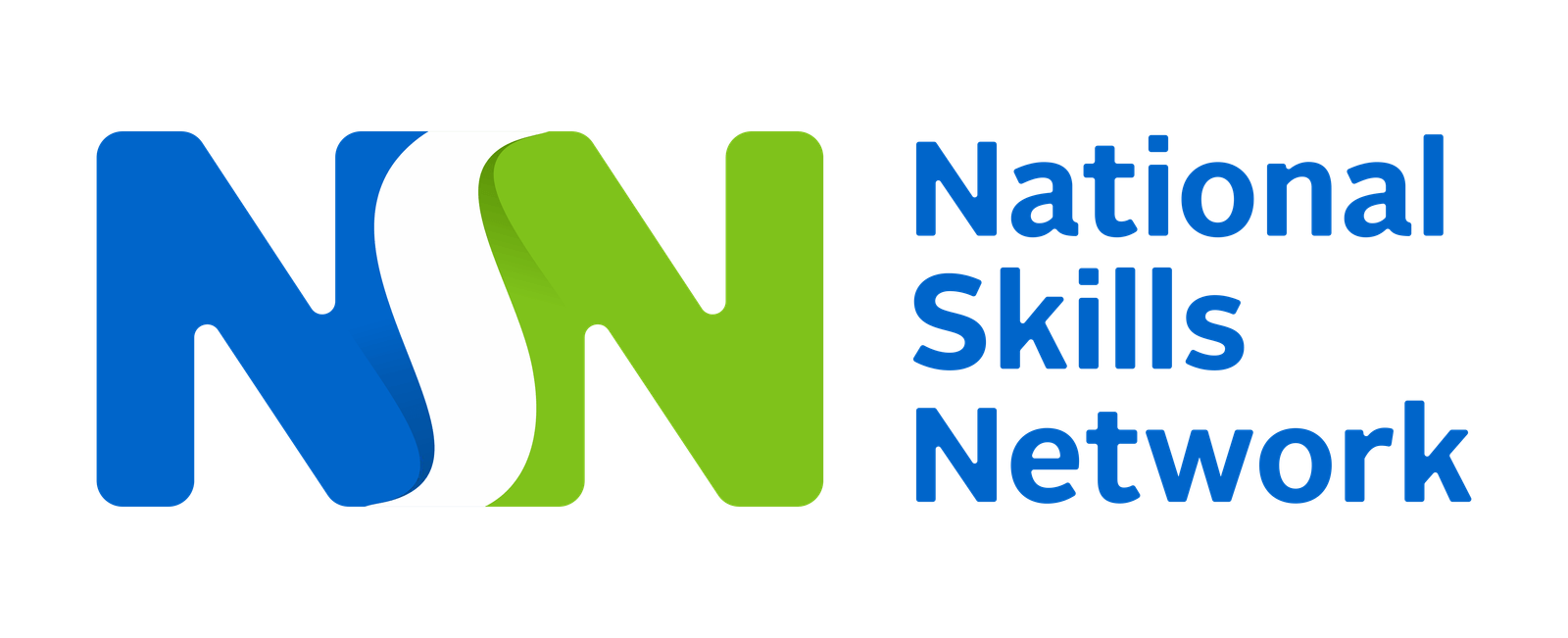- Imagine a world where the pace of learning and the time to complete a degree programs gets shorter
- Imagine learning that is outcome and competency based and directly connected with work and job rules
- Imagine jobs that require learning in the form of upskilling to meet the requirements of dynamic world of work
Welcome to the world of micro-credentials – the short, focused and stackable certification that can be earned in a flexible way, especially for skill-based qualifications. Arguably, the preferred to learn as our attention span is fast reducing and remaining focused is a tough task in a digital world filled with many distractions.
Micro-credential are here to stay since they offer benefits like:
- Specific and focused skilling without enrolling for lengthy, full-fledged courses
- Enhanced employability and career growth through industry-integrated learning
- Highly relevant technical and vocational training as per NSQF and NCrF alignment
- Caters to different learning needs, personal preferences and priorities
- Can be accessed from online or hybrid learning platforms
These credentials can be part of a stackable framework, allowing learners to accumulate multiple micro-credentials over time, potentially leading to larger qualifications.
As India embarks on a journey to align education with employment through skill-based work-integrated learning, National Skills Qualification Framework (NSQF) plays a prominent role in reaching various milestones. And, micro credentials, when aligned with NSQF could transform the way we acquire competencies and assign credit levels.
3-step process to align micro-credentials with NSQF and NCrF
Micro-credentials form the foundation for assigning credit levels as per the National Credit Framework (NCrF) and help create learning pathways leading to larger qualifications. Let’s look at the three-step process to align micro credentials with NSQF and NCrF,
Step 1: Competency mapping with NSQF levels
- Any skill courses can be broken down into tangible learning outcomes or competencies. These can be aligned with 8 NSQF levels wherein each level defines prescribed knowledge, skills, aptitude, responsibility, and learning outcomes
NSQF Revised Levels Part 1
NSQF Revised Levels Part 2
Step 2: Assigning credits as per NCrF and creating pathways
The credit requirements for each NSQF- based qualification can be fulfilled by designing micro credentials and assigning credit levels. The credit levels are based on the goals and duration of learning. As per NCrF one credit level equals 30 notional hours of learning. Multiple credits can add up to a particular qualification at a given NSQF level.
Any NSQF-aligned skill-based course can comprise multiple, stackable micro-credentials showing progression pathways for advanced credit levels. This can also help in recognizing prior learning through RPL pathways.
Step 3: Validation through assessments and certification
In compliance with NSQF, micro-credentials should have in-built assessments to validate learning outcomes. Certificates indicating NSQF level and credits will be helpful in authenticating the learning and seeking recognition from employers and educational institutions.
Micro-credentials: A Modular Approach to Skill Development
Micro-credentials are emerging as a powerful tool to enhance skill development by breaking down training into smaller, modular units. This approach offers several advantages:
Benefits of Micro-credentials:
- Flexibility: Learners can acquire specific skills at their own pace, enabling them to upskill or reskill as needed. This flexibility is particularly valuable for working professionals who may have limited time to commit to traditional, full-time training programs.
- Relevance: Micro-credentials can be tailored to industry-specific requirements, ensuring that learners gain practical, job-ready skills. This alignment with industry needs helps learners to stay competitive in the job market.
- Stackability: By accumulating multiple micro-credentials, learners can build a comprehensive skill set and advance their careers. This modular approach allows learners to progress gradually, gaining recognition for each skill they acquire.
Advanced CNC Machining Training
This program is designed for manufacturing technicians, machine operators, and new entrants. By earning micro-credentials in areas such as CNC fundamentals, programming, advanced operations, maintenance, and quality control, learners can demonstrate their proficiency in specific CNC machining skills, making them more attractive to employers.
Guest Experience Excellence Training
This program targets frontline hospitality staff, hotel employees, and aspiring professionals. By acquiring micro-credentials in hospitality fundamentals, customer service, cultural sensitivity, hotel operations, food and beverage service, and event planning, hospitality professionals can enhance their skills and knowledge, leading to improved guest satisfaction and career advancement.

Micro-Credentials and Recognition of Prior Learning (RPL)
Micro-credentials are an innovative way to acknowledge and validate skills acquired through informal learning or work experience. They enable professionals to transform their expertise into formal recognition, improving employability and access to educational opportunities.
Example: RPL in Culinary Skills for Hospitality Workers
Ajay, a kitchen assistant with five years of experience, has developed culinary skills on the job but lacks formal certification. To advance his career and become a certified chef, he needs a structured pathway to showcase his skills.
How micro-credentials can help: They can help individuals like Ajay, a kitchen assistant with practical experience, to formalize their skills and advance their careers. Through a skill assessment process, Ajay’s culinary abilities are evaluated. Based on the assessment, he earns micro-credentials for foundational culinary modules. These micro-credentials can be used to fill skill gaps through targeted courses and contribute to a higher-level qualification, such as a diploma or certificate in culinary arts. Ultimately, these verified skills enhance Ajay’s employability and open doors to new opportunities.
Upskilling IT Professionals in AI and Machine Learning
Priya, a software developer, wants to transition into AI-driven roles. Although skilled in software development, she lacks expertise in AI and machine learning.
How micro-credentials can help: They offer a flexible and modular approach to learning. Priya, for example, can enroll in modular courses like Introduction to Artificial Intelligence, Python for Machine Learning, and Deep Learning with Neural Networks. These courses are designed for self-paced learning, allowing Priya to progress at her own pace. By completing all modules, Priya can earn a comprehensive certification in AI, demonstrating her advanced competencies. This stackable approach empowers learners to acquire skills and advance their careers.
Top reasons to consider micro-credentials
- Recognition of Prior Learning (RPL): Acknowledges and validates skills gained through non-formal learning, bridging the gap between experience and qualifications.
- Career advancement: Converts informal learning into formal credentials, enhancing employability and career progression.
- Cost and time efficiency: Recognizes existing expertise, saving time and money by avoiding redundant training.
- Skill alignment with NSQF: Ensures that learning outcomes meet national and industry standards for credibility and acceptance.
- Modular and stackable: Allows learners to upskill incrementally, building towards comprehensive qualifications tailored to career goals.
This framework ensures that micro-credentials are versatile tools for professional development, empowering individuals across industries to achieve recognition and career growth.
A practical framework for implementation
Adopting micro-credential frameworks requires a structured approach to ensure alignment with industry needs and standards. It can be seamlessly integrated into educational and training frameworks by following these five key steps:
- Identify skill needs: Collaborate with industry experts to map in-demand skills and break them into smaller, measurable competencies aligned with frameworks like NSQF.
- Develop modular learning paths: Design flexible, modular courses that cater to diverse learners and focus on specific skill sets.
- Integrate assessments: Use practical, project-based assessments to validate learners’ skills, including industry-relevant tasks and peer reviews.
- Issue stackable credentials: Award digital badges or certificates for completed modules, allowing them to accumulate towards larger qualifications.
- Foster industry collaboration: Partner with industry leaders to co-create and validate micro-credentials, ensuring their relevance and recognition.
By following these steps, micro-credentials can be implemented effectively, creating a dynamic, learner-centric model that bridges the gap between education and employment.
Micro-credentials are shaping the future of education and workforce development by providing flexible, focused, and outcome-driven learning opportunities. They address the challenges of time constraints, industry alignment, and skill relevancy, making them indispensable in today’s dynamic job market. As India continues its journey toward skill-based, work-integrated education, frameworks like NSQF and NCrF further elevate the value of micro-credentials by standardizing and formalizing their role in learning pathways.
Whether it’s an aspiring professional seeking advancement, an industry expert validating prior learning, or an organization aiming to upskill its workforce, micro-credentials serve as a versatile and impactful tool. By embracing micro-credentials, we not only enhance employability and career growth but also pave the way for a more agile and skilled workforce, ready to meet the evolving demands of the global economy.
Now is the time to reimagine education and skill development—one micro-credential at a time! Explore the micro-credential options available today and start building your future.
Subscribe to our YouTube channel for more updates:
Subscribe on YouTube












